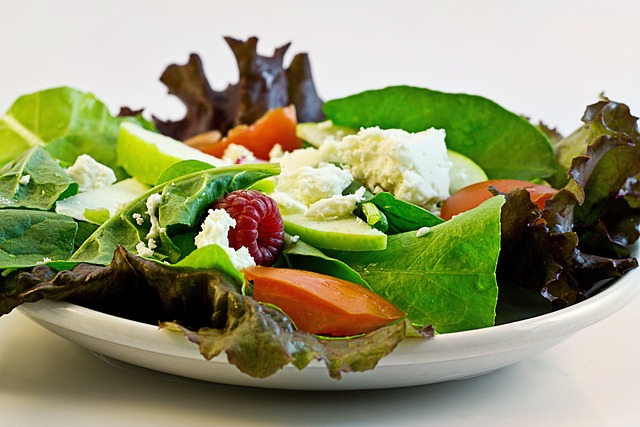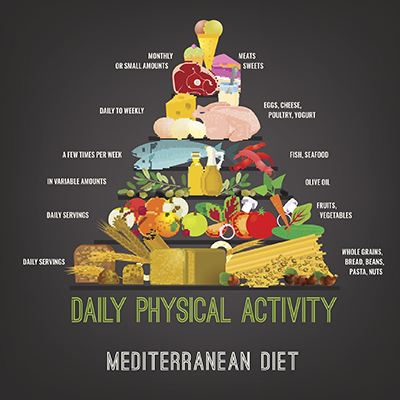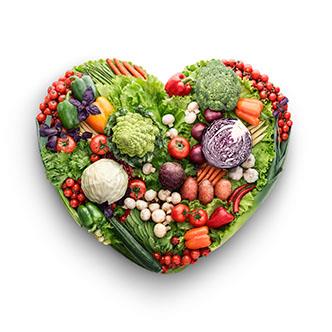
Welcome to our comprehensive guide on mastering healthy eating!
In this article, we will equip you with 12 essential tips to navigate the world of nutrition, from understanding food labels to honing your cooking techniques.
Backed by evidence and practical advice, our guide is designed to empower you to make informed choices about your diet.
Whether you follow a plant-based diet, have dietary restrictions, or simply seek to improve your overall well-being, these tips will help you on your journey to healthier eating.
Food Labels
Understanding the information provided on food labels is essential for anyone striving to master healthy eating. Food label regulations are in place to ensure that consumers have access to accurate and transparent information about the products they purchase.
Decoding food labels can be overwhelming, but with a little knowledge, it becomes easier to make informed choices. Start by looking at the serving size, as this will determine the nutritional content per serving. Pay attention to the calories, fat, sodium, and sugar content, as excessive amounts of these can contribute to various health issues. Additionally, check for key nutrients like fiber, vitamins, and minerals.
Familiarizing yourself with common food label terms and understanding their meanings will empower you to make healthier choices and take control of your diet. Remember, knowledge is power when it comes to decoding food labels and making informed decisions about your health.

Cooking Techniques
When it comes to cooking techniques, there are several points to consider.
First, understanding heat control methods is crucial in ensuring that your food is cooked evenly and to the desired level of doneness.
Second, flavor-enhancing cooking techniques such as marinating, braising, and roasting can take your dishes to the next level.
Lastly, time-saving cooking hacks can help you prepare healthy meals efficiently, making it easier to stick to a nutritious eating plan.
Heat Control Methods
Mastering heat control methods is essential for achieving optimal cooking results and maintaining the nutritional value of your food. Here are four heat control methods and portion control techniques that can help you in your cooking journey:
- Sautéing: This quick and versatile method involves cooking food in a small amount of oil or butter over medium-high heat. It helps to retain the flavors and textures of the ingredients, making it perfect for vegetables and proteins.
- Steaming: Steaming is a gentle cooking method that preserves the nutrients in your food. It involves using steam to cook ingredients, either by placing them in a steamer basket or using a steaming pot. It's a great option for vegetables, seafood, and dumplings.
- Grilling: Grilling provides a delicious smoky flavor to your food while minimizing the need for added fats. It involves cooking food directly over a hot flame or coals. Grilling is perfect for meats, fish, and vegetables.
- Baking: Baking is a dry heat cooking method that is ideal for casseroles, bread, and desserts. It involves cooking food in an enclosed space, such as an oven, using indirect heat. Baking allows for even cooking and enhanced flavors.
Flavor-Enhancing Cooking Techniques
To elevate the taste of your dishes, incorporating flavor-enhancing cooking techniques is essential. One way to add depth and complexity to your meals is by using flavor-infused recipes. These recipes incorporate various ingredients such as herbs, spices, and marinades to infuse the dish with rich flavors.
For example, marinating meat in a blend of soy sauce, garlic, and ginger can add a savory and tangy taste to your grilled steak. Another technique is the use of spice blends. These blends combine different spices in specific ratios to create a harmonious flavor profile.

Whether it's a Moroccan spice blend for a flavorful tagine or a Cajun seasoning for a spicy jambalaya, these spice blends can take your dishes to the next level. Incorporating flavor-enhancing cooking techniques like these can transform your meals from ordinary to extraordinary.
Time-Saving Cooking Hacks
To streamline your cooking process and save time in the kitchen, implement time-saving cooking hacks that build upon the flavor-enhancing techniques discussed earlier.
Here are four practical tips for efficient meal preparation and portion control:
- Batch cooking: Dedicate a day or two each week to prepare large quantities of staple ingredients like grains, proteins, and vegetables. This way, you'll have pre-cooked components ready to assemble quick and nutritious meals throughout the week.
- One-pot meals: Opt for recipes that require minimal pots and pans, reducing both cooking time and clean-up. Consider dishes like stir-fries, sheet pan meals, or soups, where all ingredients are cooked together in one pot.
- Slow cooker or Instant Pot: Utilize these time-saving appliances to effortlessly cook meals while you attend to other tasks. Simply add ingredients, set the timer, and let the appliance do the work for you.
- Pre-portioned meals: Prepare individual servings of meals or snacks in advance to promote portion control and simplify your daily routine. Use reusable containers to store pre-portioned meals for grab-and-go convenience.
Meal Planning
Meal planning is an essential tool for mastering healthy eating. Not only does it provide numerous benefits such as better portion control, reduced food waste, and improved nutrition, but it also saves time and eliminates the stress of deciding what to cook each day.
Benefits of Meal Planning
Meal planning offers numerous advantages for individuals striving to maintain a healthy and well-balanced diet. By taking the time to plan meals in advance, people can make more informed choices about what they eat, leading to better overall nutrition.
Here are four benefits of meal planning:
- Time-saving: Planning meals ahead of time eliminates the need to think about what to cook each day. This saves time on meal prep, grocery shopping, and decision-making.
- Cost-effective: Meal planning allows individuals to create a shopping list based on their planned meals, reducing impulse purchases and food waste. This can lead to significant savings on grocery bills.
- Healthier choices: By planning meals in advance, individuals can ensure they have a variety of nutritious options available. This helps to avoid relying on unhealthy convenience foods or takeout.
- Reduced stress: With meals planned and ingredients on hand, there is less stress and pressure around mealtime. This can lead to a more enjoyable and relaxed dining experience.
Time-Saving Meal Prep
Streamlining meal preparation through efficient planning techniques is an essential strategy for saving time and ensuring a successful healthy eating routine.

By incorporating time-saving tips and meal prepping techniques into your routine, you can free up valuable time and make healthier choices effortlessly.
One key time-saving tip is to plan your meals for the week ahead. This allows you to create a grocery list and purchase all the necessary ingredients in one trip, saving you multiple trips to the store throughout the week.
Another technique is to batch cook your meals. By preparing larger portions and storing them in individual containers, you can have ready-made meals for several days, reducing the need for daily cooking.
Additionally, utilizing kitchen tools like slow cookers or pressure cookers can significantly cut down on cooking time.
Plant-Based Diets
A subordinating conjunction is used to introduce a dependent clause, which cannot stand alone as a complete sentence. By incorporating more plant-based foods into your diet, you can improve your overall health and well-being. Plant-based diets have gained popularity in recent years due to their numerous health benefits. Here are four reasons why you should consider adding more plant-based recipes to your meal plan:
- Lower risk of chronic diseases: Plant-based diets have been linked to a reduced risk of heart disease, high blood pressure, type 2 diabetes, and certain types of cancer.
- Increased nutrient intake: Plant-based foods are rich in essential nutrients such as vitamins, minerals, and antioxidants, which are important for maintaining a healthy body.
- Weight management: Plant-based diets are generally lower in calories and higher in fiber, making them an effective approach for weight loss and weight management.
- Environmental sustainability: Choosing plant-based foods over animal products can help reduce greenhouse gas emissions, land and water usage, and the overall impact on the environment.
Incorporating more plant-based recipes into your diet can have significant health benefits while also being environmentally friendly.
Portion Control
Portion control plays a crucial role in maintaining a healthy diet. Understanding serving sizes is essential for managing calorie intake and avoiding overeating.

Alongside mindful eating techniques, there are various hacks that can help individuals control their portions and make healthier food choices.
Serving Size Importance
To fully grasp the importance of serving sizes and portion control, it is essential to understand the significance of accurately measuring and monitoring the amount of food consumed. Portion control is a key aspect of mindful eating, which focuses on being present and aware of what and how much we eat. By practicing portion control, we can maintain a healthy weight, prevent overeating, and improve digestion.
Here are four tips to help you master serving size importance:
- Use measuring cups and spoons: Measuring your food can provide a visual representation of appropriate portion sizes.
- Read food labels: Pay attention to the serving size listed on the package to ensure you are consuming the recommended amount.
- Be mindful of eating out: Restaurants often serve larger portions, so consider sharing a meal or asking for a takeout box to save leftovers for later.
- Practice mindful eating: Slow down and savor each bite, paying attention to hunger and fullness cues to avoid overeating.
Mindful Eating Techniques
Practicing mindful eating techniques is essential for mastering portion control and maintaining a healthy relationship with food.
Mindful eating encourages individuals to pay attention to their body's hunger and fullness cues, helping them avoid overeating or undereating.
One effective technique is to eat slowly and savor each bite. This allows the brain to register satisfaction and helps prevent overconsumption.
Another helpful hack is to use smaller plates and bowls, as research suggests that people tend to eat less when using smaller dishware.

Additionally, being mindful of portion sizes can be achieved by measuring food portions with measuring cups or using visual cues, such as comparing the size of a serving to common objects like a deck of cards or a tennis ball.
Portion Control Hacks
Implementing effective strategies for managing portion sizes is crucial for maintaining a healthy eating routine. Here are some portion control tips and portion size recommendations that can help you make better choices and avoid overeating:
- Use smaller plates and bowls: Research has shown that using smaller dinnerware can trick your brain into feeling satisfied with smaller portions.
- Measure your food: Invest in a food scale or use measuring cups to accurately portion your meals. This can help you become more aware of serving sizes and prevent mindless eating.
- Fill half your plate with vegetables: Vegetables are low in calories and high in nutrients, making them the perfect choice for filling up your plate without overdoing it on calories.
- Practice mindful eating: Slow down, savor each bite, and pay attention to your body's hunger and fullness cues. This can help you eat until you're satisfied rather than stuffed.
Organic Foods
One key aspect of incorporating healthy eating habits is understanding the benefits of consuming organic foods. Organic foods are produced using organic farming methods, which prioritize the use of natural fertilizers and avoid the use of synthetic pesticides and genetically modified organisms (GMOs). This means that organic foods are free from harmful chemicals and additives, making them a healthier choice for individuals who prioritize clean eating.
Research has shown that organic foods may have higher levels of certain nutrients, such as vitamins, minerals, and antioxidants, compared to conventionally grown foods. Additionally, organic farming practices promote soil health and biodiversity, which can have positive effects on the environment.
When shopping for organic foods, look for the USDA Organic seal on the packaging, which ensures that the product meets the strict organic standards set by the United States Department of Agriculture.
Nutrient Density
Nutrient density refers to the concentration of essential nutrients in a food item. It is an important concept to understand when it comes to making healthy food choices. Here are four key points to keep in mind about nutrient density:
- Nutrient absorption: Foods that are nutrient-dense are more easily absorbed by the body, allowing you to get the most out of the nutrients they contain. This can help improve overall health and prevent nutrient deficiencies.
- Nutrient deficiency: Consuming foods that are low in nutrient density can increase the risk of nutrient deficiencies. These deficiencies can lead to various health problems and compromise your immune system.
- Quality over quantity: When it comes to nutrient density, it's important to focus on the quality of the food you eat rather than the quantity. Choose foods that are packed with vitamins, minerals, and other essential nutrients.
- Variety is key: To ensure you're getting a wide range of nutrients, aim to include a variety of nutrient-dense foods in your diet. Incorporate fruits, vegetables, whole grains, lean proteins, and healthy fats to optimize your nutrient intake.
Hydration
To maintain optimal health and support nutrient absorption, it is essential to prioritize hydration. Staying hydrated has numerous benefits for our bodies.

Water is essential for the proper functioning of all our cells, organs, and systems. It helps regulate body temperature, lubricates joints, aids digestion, and flushes out waste and toxins. Dehydration, on the other hand, can lead to fatigue, dizziness, headaches, and difficulty concentrating.
To stay hydrated, it is important to drink an adequate amount of water throughout the day. The Institute of Medicine recommends a daily intake of about 3.7 liters for men and 2.7 liters for women. However, individual needs may vary depending on factors such as activity level and climate. It's important to listen to your body's thirst cues and drink water accordingly.
Additionally, consuming hydrating foods such as fruits and vegetables can also contribute to your overall hydration.
Eating Disorders
Eating disorders pose significant challenges to individuals' mental and physical well-being. These disorders, such as anorexia nervosa, bulimia nervosa, and binge eating disorder, can have severe consequences if left untreated. To promote a healthy relationship with food and prevent or overcome eating disorders, adopting mindful eating techniques can be beneficial.
Here are four practical tips to incorporate mindful eating into your daily life:
- Listen to your body: Pay attention to your hunger and fullness cues. Eat when you are hungry and stop when you are comfortably satisfied.
- Slow down: Take your time to chew your food properly and savor each bite. This allows you to fully experience the flavors and textures of your meal.
- Avoid distractions: Minimize distractions like TV, phones, or laptops while eating. Focus on your meal and the experience of eating.
- Practice self-compassion: Be kind to yourself and let go of any guilt or judgment associated with food. Remember that all foods can be part of a balanced and healthy diet.
Dietary Restrictions
Dietary restrictions can present challenges and limitations in individuals' pursuit of a healthy eating lifestyle, requiring careful consideration of ingredient choices and alternative options. For those with specific dietary needs, such as allergies, intolerances, or ethical choices, eating out can be particularly daunting.
However, with proper planning and knowledge, it is possible to navigate restaurant menus and enjoy a satisfying meal while sticking to your dietary requirements. When dining out, it is essential to communicate your dietary restrictions clearly to the waitstaff or chef. In many cases, restaurants are willing to accommodate special requests or provide ingredient information.

Additionally, it can be helpful to research and choose restaurants that offer options suitable for your dietary needs. By being proactive and informed, you can maintain your healthy eating lifestyle even when eating out.
Seasonal Foods
When considering healthy eating, it is important to take into account the availability and benefits of seasonal foods. Eating seasonal foods not only supports local farmers and the environment, but it also brings a range of health benefits. Here are four reasons why incorporating seasonal foods into your diet is a great idea:
- Nutritional Value: Seasonal fruits and vegetables are harvested at their peak, ensuring they are packed with essential nutrients and antioxidants.
- Taste and Flavor: Seasonal produce is fresher and tastier, as it doesn't have to travel long distances. The flavors are more pronounced, making your meals more enjoyable.
- Cost-Effective: Buying seasonal foods is often more affordable, as the supply is abundant, reducing the cost of transportation and storage.
- Variety: Eating seasonal allows you to diversify your diet and try new recipes using fresh, in-season ingredients.
Incorporating seasonal recipes into your meal planning can help you enjoy the benefits of eating seasonal foods while adding excitement and variety to your plate.
Food Waste
Minimizing food waste is crucial for promoting sustainability and reducing environmental impact in the realm of healthy eating. Food waste reduction is an essential aspect of sustainable eating habits. When we waste food, we not only contribute to the depletion of natural resources used in production but also increase greenhouse gas emissions from rotting food in landfills.
To reduce food waste, it is important to plan meals and grocery shopping effectively, store food properly to extend its shelf life, and repurpose leftovers creatively. Additionally, understanding expiration dates and using them as guidelines rather than strict rules can help prevent unnecessary discarding of perfectly good food.
Frequently Asked Questions
How Can I Cultivate a Healthy Relationship With Food and Maintain a Balanced Diet?
Developing mindful eating habits and overcoming emotional eating are essential for cultivating a healthy relationship with food and maintaining a balanced diet. This involves being aware of the food choices, practicing portion control, and finding alternative ways to cope with emotions.
Are There Any Specific Foods or Nutrients That Can Help Boost My Immune System?
Certain foods and nutrients have been shown to boost the immune system. Incorporating immune-boosting foods into a nutrient-rich diet can provide the necessary vitamins, minerals, and antioxidants to support optimal immune function and overall health.

What Are Some Effective Strategies for Reducing Sugar Intake and Managing Cravings?
Effective strategies for reducing sugar intake and managing cravings include practicing mindful eating, reading food labels for hidden sugars, using sugar substitutes in moderation, and finding alternative ways to satisfy sweet cravings, such as consuming fruits or incorporating spices like cinnamon.
How Can I Incorporate More Fruits and Vegetables Into My Diet Without Getting Bored?
Incorporating more fruits and vegetables into your diet without getting bored can be achieved through creative meal ideas and healthy snack alternatives. This ensures variety and nutritional value, promoting a balanced and enjoyable eating experience.
Are There Any Recommended Portion Sizes for Different Age Groups or Activity Levels?
Recommended portion sizes are important for maintaining a healthy diet. They vary based on age, activity level, and individual needs. Understanding portion control can help individuals make informed choices and achieve their health goals.






